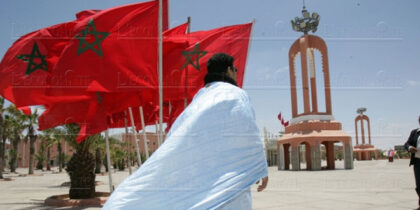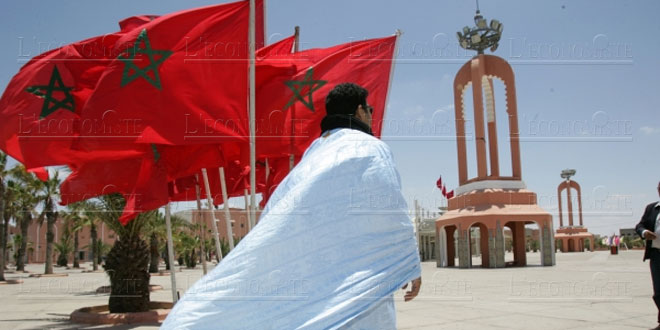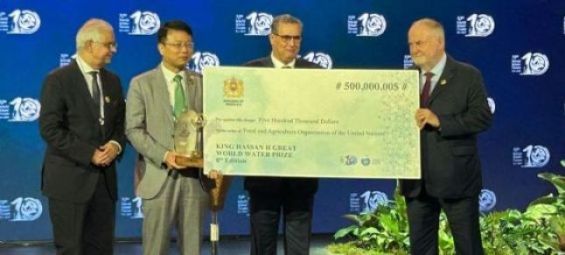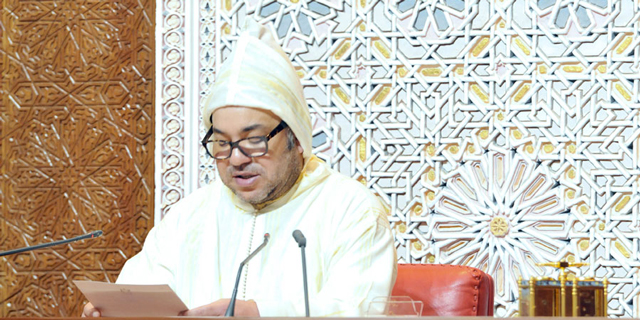 Since he assumed power in January, US President Joe Biden has received several letters from politicians, MPs, elected representatives, and civil society activists from the United States, Europe, Africa and Latin American, expressing backing to the US recognition of the Moroccanness of the Sahara and underscoring that the resolution of the Sahara conflict will ensure both peace, development, and prosperity in the Sahara region, and beyond.
Since he assumed power in January, US President Joe Biden has received several letters from politicians, MPs, elected representatives, and civil society activists from the United States, Europe, Africa and Latin American, expressing backing to the US recognition of the Moroccanness of the Sahara and underscoring that the resolution of the Sahara conflict will ensure both peace, development, and prosperity in the Sahara region, and beyond.
The latest such letter was addressed to the US president by the Ottawa-based Think tank Polisens, which underlined that the US recognition of Morocco’s sovereignty over the Sahara enacted last December is the culmination not of a few years, or of a few decades, but of 300 years which made such an act of friendship a natural act.
The letter, signed by several Canadian public figures, calls on President Biden to support his country’s decision to recognize Morocco’s full sovereignty over its Sahara and to endeavor to end the sufferings of the populations held captive in the Tindouf camps, in Algeria.
“The decision to recognize the sovereignty of Morocco over its Saharan provinces taken by your great nation is another gravitational wave which will resonate for millennia”, indicated the Think tank in the letter signed by political figures and civil society activists in Canada.
“The artificial conflict over the Moroccan provinces of the Sahara has lasted too long and undermined the freedom and human dignity of thousands of populations held captive in the camps of shame in Tindouf on Algerian territory”, they added, noting the urgency of putting an end to this humanitarian ordeal.
“In the name of the values of your great nation and in the name of the long-standing friendship between the United States and Morocco, we invite you to exercise your influence to put an end to the hellish conditions in which the Sahrawi population live on the Algerian territory”, pleaded the signatories of the letter.
They assured that this is not just a matter of sovereignty for Morocco, but a question of historical, geographical, political, religious and civilizational legitimacy. The proofs are numerous and cannot be reversed by fallacious and indefensible allegations, they pointed out.
In this regard, they recalled that more than 160 countries do not recognize the Polisario and that the decision of the International Court of October 1975 concluded that links have always existed between the Kingdom and its southern territories, the Moroccan Sahara.
In addition, the autonomy proposal that the Kingdom presented in 2007 is widely applauded by all UN resolutions which describe it as credible and serious, they said.
“If the resolution of the conflict is at an impasse, it is because Algeria is opposed to it by holding the Moroccans hostage in camps on its territory and by refusing to assume its responsibility in the conflict that it created”, the letter signatories stated further.
“It is now clear that the Polisario is not an entity representing a cause, but rather a tool cynically used by Algiers”.
They also deplored the fact that the fate of the Moroccans in captivity has been ignored, because “they represent only a fraction in the grim calculations of those who profit from the status quo, Algeria.”
This very country, which is responsible for this state of limbo, has not allowed the UN to carry out a census of Moroccans held captive on its territory for fear that they will discover the truth, namely that these camps are infested with terrorists.
In this connection, the letter underscored the security threats weighing on the region, in view of the Polisario’s documented links with terrorist groups in the sub-Saharan region.
The authors of the letter further indicated that the application by the United States of the 2008 law on the prevention of child soldiers is an essential tool to inquire into the fate of the 8,000 Sahrawi child soldiers kidnapped and deported to Cuba since 1982 for ideological indoctrination and military training, while their parents are still victim of blackmail and torture.
Unfortunately, these child soldiers are now joining extremist groups in the Sahara, they deplored.



